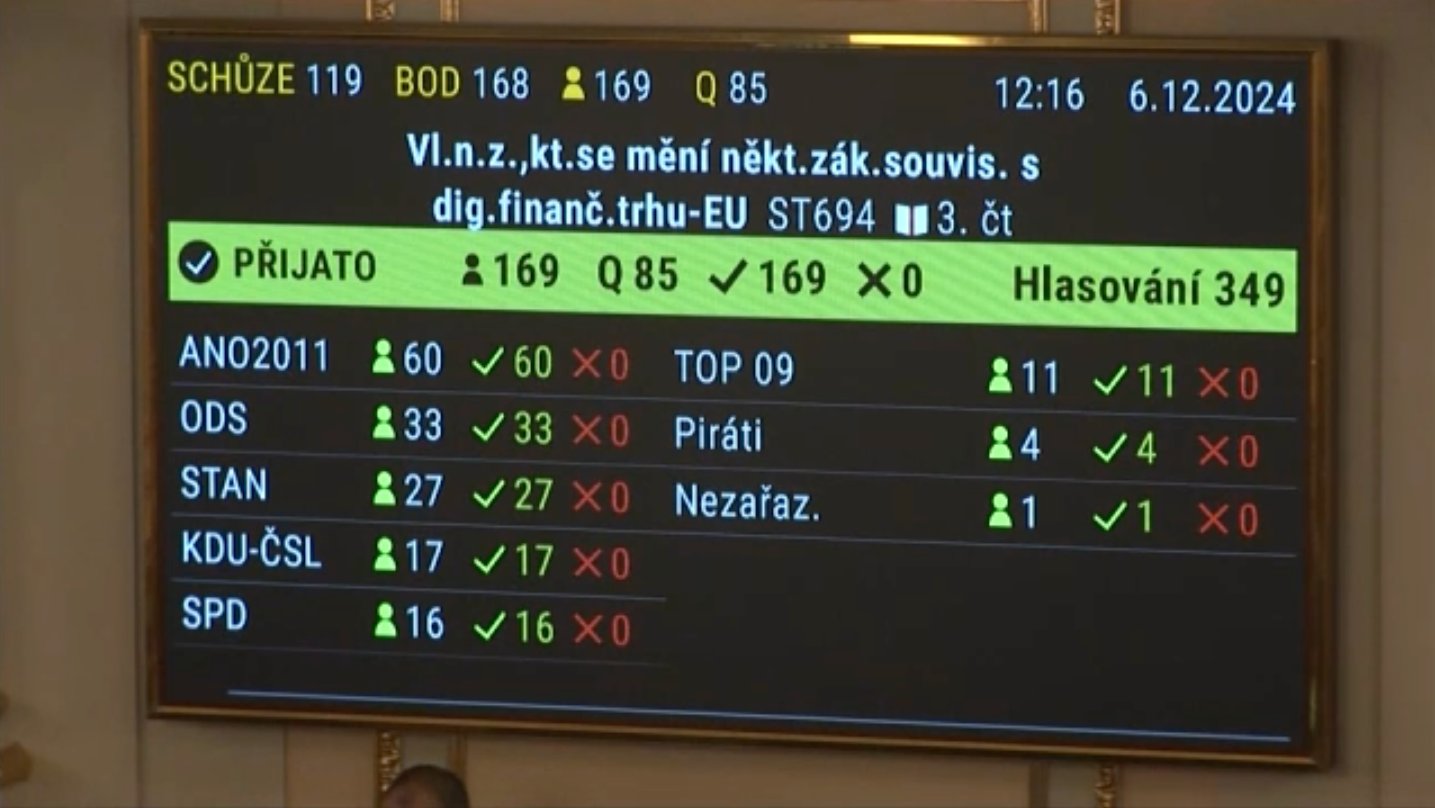Key Takeaways
- The Czech Republic has exempted Bitcoin held for greater than three years from capital good points tax beginning 2025.
- The laws requires the belongings to not be a part of enterprise belongings to qualify for the tax exemption.
Share this text
The Czech Parliament has voted in favor of a proposed modification that exempts capital good points from the sale of Bitcoin and different crypto belongings from private revenue tax, as shared by outstanding monetary analyst and entrepreneur Kristian Csepcsar.
No capital good points tax on bitcoin has simply been handed in The Czech Republic with all members of the parliament voting for it
pic.twitter.com/i7E8aZHC2W
— Kristian Csepcsar (@KristianCsep) December 6, 2024
In keeping with Pavol Rusnak, co-founder of SatoshiLabs, the corporate behind the world-renowned Trezor {hardware} pockets, the modification was handed by 169 votes on December 6, with almost all parliamentarians backing it.

Below the brand new coverage, people won’t be required to pay capital good points tax on income from Bitcoin and different crypto belongings in the event that they meet two circumstances—whole gross revenue from crypto asset gross sales in a tax 12 months should not exceed CZK 100,000 and the crypto belongings should be held for greater than three years, in accordance with an October report from KPMG.
The exemption is just like the prevailing exemption for securities. It has been a part of ongoing discussions about complete reforms in crypto taxation within the nation.
These reforms are supposed to align with EU laws and will additional form how digital belongings are handled beneath Czech regulation. The Czech authorities goals to foster a extra favorable surroundings for crypto traders, in addition to participation within the crypto market.
Beforehand, income from crypto transactions had been topic to a capital good points tax fee that diverse between 0% and 19%, relying on the character of the good points and different components. The standard tax fee for private revenue derived from buying and selling crypto was set at 15%.
Property acquired earlier than 2025 could qualify for the exemption if bought beneath the desired circumstances in subsequent tax years.
Nonetheless, the laws leaves some technical features unclear, together with strategies to confirm possession length, and operates with out an explanatory memorandum to deal with potential ambiguities.
The Czech authorities haven’t launched further steerage on implementing the brand new guidelines, leaving taxpayers and practitioners to depend on basic ideas. And not using a devoted definition of digital belongings within the Earnings Tax Act, the exemption may doubtlessly apply to numerous sorts of crypto holdings.
Share this text
















